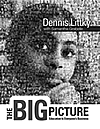 By Dennis Littky with Samantha Grabelle (Association for Supervision and Curriculum Development, 230 pages, $26.95) BUY NOW!
By Dennis Littky with Samantha Grabelle (Association for Supervision and Curriculum Development, 230 pages, $26.95) BUY NOW!
reviewed by Jill Davidson
Elias, my four-year old son, is crazy about baseball. As any parent—anyone who spends time with a child she or he knows well—can and most certainly will tell you, watching that kid’s mind unleash itself is joyfully dizzying. Elias has organized his speech development, his imaginative play, his literacy acquisition, and his blossoming math skills around baseball. He has learned to read so he can identify players; he adds so he can write page after page of box scores; he tells intricate, inventive stories about the fates of teams and players. It’s real work with real meaning for a real purpose. As I read The Big Picture I thought about Elias, about how he knows what he loves, about how that’s been such an extraordinary motivating lever in his life already, and about how my responsibility is to enter with him into new (non-baseball!) experiences so his world keeps expanding even as he thrives, at home in his world of baseball. This has been his education, and I will make sure it remains so as the years unfold.
Demonstrating the esteem and respect for young people that they deserve and that the people who love them best so desperately want, Dennis Littky describes how he, with the help of many, founded Providence, Rhode Island’s Metropolitan Regional Career and Technical Center (known widely as “The Met”) on what he believed most deeply after a lifetime creating and remaking schools. The Met respects high school students for their passions, encourages (and gently forces) their explorations, organizes their learning around what’s meaningful, requires hard work and interdependence, and asks everyone—community members, families, students, teachers—to be accountable for education.
Littky opens The Big Picture with students’ writing, emphasizing his belief that “the students must and always come first,” and follows up in the first chapter with a hard charge through his beliefs about learning, teaching, and the “best possible environment” that supports the collaboration of students and teachers. The second chapter details that environment, contending that school—and society—must understand students’ whole lives and respect complexity, insisting that the only way to do that is to remake schools so they are driven by pace, interests, challenges, and gifts of the young people that they serve.
Taking on school culture, the third chapter includes Littky’s take on the culture-shaping role that Met advisories play, and it describes the conditions that make it possible for adults at the Met to focus on “one student at a time.” Chapter four breaks down the work and rewards of running a school that way, and chapters five and six dive into how it’s done, focusing respectively on learning through passions and learning through “real work in the real world” (that is, the Met’s “Learning Through Internships” program). Chapter seven completes the cirlce, bringing the students, mentors, teachers, and families together. Littky uses the next two chapters to argue against inelegant and unsatisfying traditional grading and standardized tests and make the case for exhibitions and narrative evaluation, with lots of detail about how the Met does it.
The Big Picture concludes with the call to “Make It Happen,” providing a practical to-do list for all of us—non-school people in particular—to make real change happen. Littky’s voice is like a message from another land, where, with hard work and vision, the grass really is greener. Littky lists ways for us to push aside the status quo and make room for the schools our kids need now.
One of the Met’s graduation requirements is a lengthy autobiography, and I imagine that many Met grads are quite pleased that Littky has finally created his own, infused with student work, past writing (often pulled from the Met’s weekly “TGIF” memo), dozens of stories, provoking quotations, lists, memories and questions for further conversation. This collage, with the book’s emphatic, often bold-printed prose, captures Littky’s energetic personal presence aptly. The Big Picture is a portfolio, really, of a vibrant life well-lived in an exciting, accelerating movement to infuse the image and practice of schooling with meaning, real accountability, and personal power.
